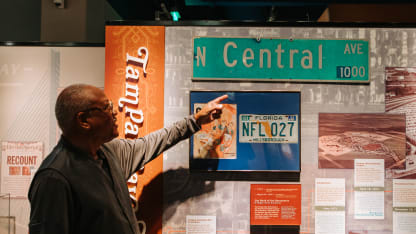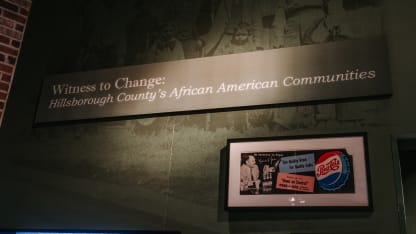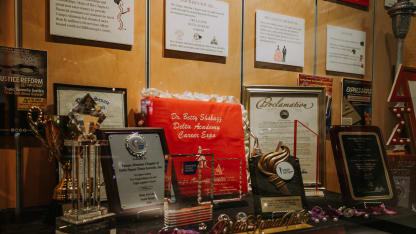Just steps from the southeast corner of AMALIE, across Water Street, sits the Tampa Bay History Center. The museum focuses on Tampa Bay's place within 12,000 years of Florida history. Visitors can learn about the state's first settlers, the area's involvement in American wars, Ybor City's rich Cuban heritage and everything in between.
Tampa Bay's local sports teams are prominently featured, as well.
Remember when the University of Tampa had a football program? The History Center prominently displays a game-worn Freddie Solomon jersey. Sure, Leroy Selmon was a stud on the field for the Buccaneers, but did you also know the incredible impact he made at the University of South Florida and on the area as a whole? The Lightning have their place, too, with information on the 2004 Stanley Cup Championship team.
With February 1st marking the start of Black History Month, the History Center is also a great resource to learn about Tampa Bay's place in our nation's sometimes difficult conversations about race.
Working to share that story is Fred Hearns, the Tampa Bay History Center's Curator of Black History.
Tampa's Black History shared just steps from AMALIE Arena
To celebrate Black History Month, the Tampa Bay History Center has a month of programming designed to engage and inform





















